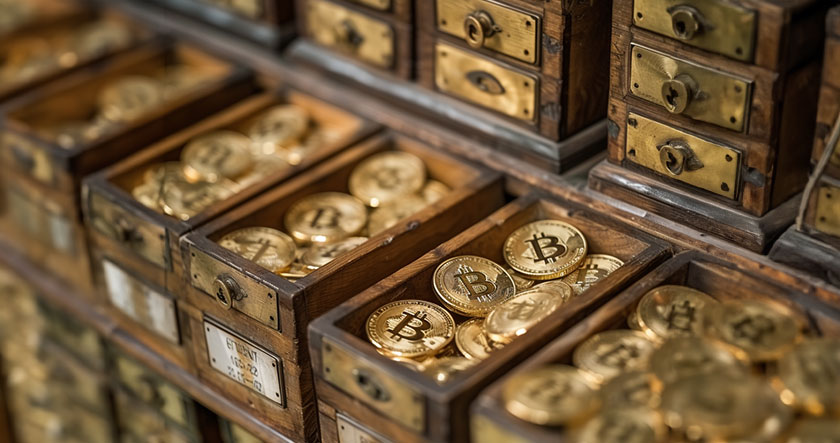Image via Freepik
In a significant development for the cryptocurrency landscape, Senator Cynthia Lummis has announced plans to introduce the Boosting Innovation Technology Competitiveness Optimized Investment Nationwide (BITCOIN) Act 2024, which aims to establish a national Strategic Bitcoin Reserve.
This proposal is not just a bold political move; it signifies a monumental shift in how governments perceive and interact with bitcoin and cryptocurrencies as a whole.
Governments finally figuring out bitcoin’s store of value role
Governments around the world already hold a staggering combined total of 567,000 bitcoins representing about 3% of the total circulating supply. That’s actually more than public companies like MicroStrategy own combined (305,000 BTC).
Most governments didn’t seek out bitcoin, though – these vast fortunes were mostly seized by law enforcement agencies from criminals and illegal operations. Mostly, such seized property is simply auctioned off. The U.S. for example has already auctioned 195,000 bitcoins and made $366 million on the deal. Today, they’d be worth 30x more, about $11.7 billion.
There’s a lesson here.
Historically, nations have kept central bank reserves – a sort of savings account for the entire country. Central banks own “reserve assets,” defined as widely-accepted forms of money. Reserve assets are how two nations, each of whom can print their own currency, settle debts in “real money.”
Traditionally, gold bullion has been the cornerstone of national reserves. Central banks around the world own about 1/6th of the entire world’s above-ground gold for this purpose. Gold does a great job as a stable store of value. It’s always been money, less volatile than currencies and pretty much anyone anywhere in the world will gladly accept gold as payment of a debt. Gold isn’t exactly easy to transport, though. It’s a great store of value but a very inconvenient form of payment.
Gold doesn’t need to be replaced as a reserve asset – but it does need to be complemented…
Bitcoin as digital gold
With the emergence of digital currencies, bitcoin is increasingly being viewed as a reliable long-term store of value, despite its short-term price volatility.
The introduction of a Strategic Bitcoin Reserve could further legitimize cryptocurrencies at a national level. As countries recognize the unique properties of bitcoin – such as its decentralization and finite supply – it becomes clear that bitcoin can complement traditional assets in a diversified financial strategy. Bitcoin is far more easily transacted than physical gold bullion. Its storage is vastly less expensive. And frankly it’s a much more modern store of value than gold bullion.
The BITCOIN Act 2024 proposes to create a framework where bitcoin operates alongside gold as a reserve asset. This is a pivotal moment that could redefine how we view money itself. Just as gold has historically been regarded as a secure asset during times of economic uncertainty, bitcoin is positioning itself as the modern, digital-age partner that could not only enhance financial resilience, but tends to rise in price during good economic times.
The bill outlines the establishment of a decentralized network for secure bitcoin storage facilities across the United States. This would not only mitigate risks associated with holding such a volatile asset but also enhance the overall stability of the nation’s financial system. By treating bitcoin as a national reserve asset, the U.S. government would be acknowledging its significance in the global economy, opening the door to more widespread adoption.
What does this mean for bitcoin’s future?
The potential establishment of a Strategic Bitcoin Reserve could have profound implications for the price of Bitcoin. As more governments adopt bitcoin into their financial frameworks, demand will likely surge. This increased institutional interest will create upward pressure on prices, making it a strategic time for investors to consider diversifying their retirement savings with cryptocurrencies.
For those of us who dream of retiring one day, now is the time to act. Let’s face it: Traditional savings methods just aren’t working. Diversifying with cryptocurrencies can offer a hedge against economic uncertainty while also positioning investors at the forefront of financial innovation.
Diversifying with cryptocurrency is a way to future-proof your savings. Governments are doing it – that doesn’t necessarily mean it’s a good idea, certainly, though it does mean it’s an idea worth considering.
We stand at the precipice of a new financial era. The acknowledgment of bitcoin as a viable national reserve asset not only enhances its legitimacy but also highlights its potential for growth. As an investor, this is your opportunity to think ahead and consider how diversifying with cryptocurrencies can fit into your overall financial strategy.
At BitIRA, we specialize in helping individuals like you diversify their retirement savings through digital assets. Our services make it easy to invest in cryptocurrencies within an IRA structure, allowing you to take advantage of potential tax benefits while building a future-proof retirement savings plan.







